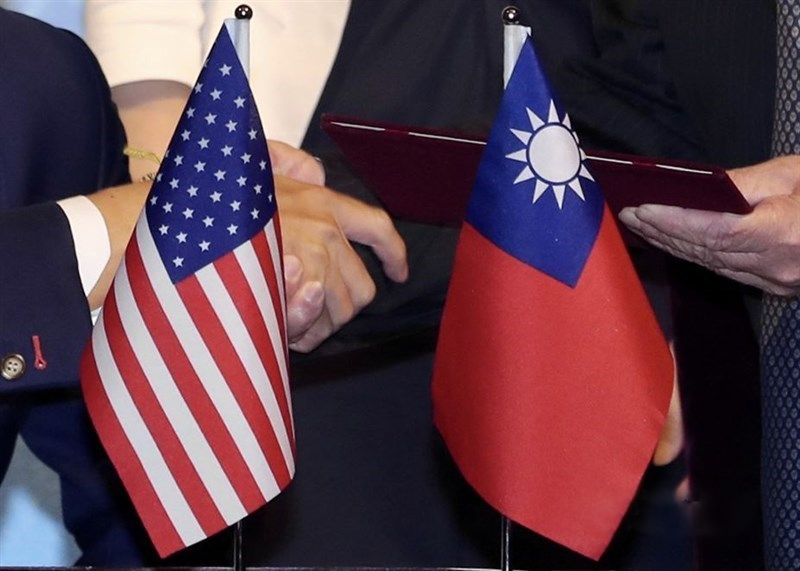Former U.S. Pacific Command chief Dennis Blair emphasized Wednesday that Taiwan’s improved military capabilities and increasing willingness to defend itself have significantly enhanced the likelihood of U.S. intervention in the event of Chinese military aggression.
Blair, who is currently in Taipei for a strategic tabletop wargame simulation hosted by multiple civilian defense think tanks, made the remarks in response to a question about how the U.S. might respond to a Chinese invasion of Taiwan.
“The stronger Taiwan’s ability and will to fight, the more likely it is that the United States will assist,” said Blair, a retired admiral and former U.S. Director of National Intelligence. “This factor greatly affects the decision-making of a U.S. president.”
Tabletop Exercise Reflects 2030 Defense Scenarios
Blair’s comments were made during a civilian-organized tabletop exercise simulating potential Chinese military escalations in 2030. The wargame involved former senior military and intelligence officials from Taiwan, the U.S., and Japan, including former Chief of the General Staff Lee Hsi-min (Taiwan), Admiral Michael Mullen (U.S.), and Admiral Tomohisa Takei (Japan).
These simulations reflect a growing regional concern over China’s “gray zone” tactics and increased maritime assertiveness. By projecting future defense scenarios, the organizers sought to examine how Taiwan and its allies might respond to various forms of Chinese coercion short of full-scale war.
Why Taiwan’s Defense Resolve Matters More Than Ever
Blair pointed to Taiwan’s modernization efforts—such as its growing investments in asymmetric warfare capabilities, training of reserve forces, and joint command systems—as crucial signals to the U.S. of its preparedness. He also noted that deterrence is not merely about military hardware, but about demonstrating the political and societal will to defend national sovereignty.
🔍 Original Insight:
While U.S. political rhetoric under Presidents Biden and his successors has publicly leaned toward defending Taiwan, Blair’s analysis stresses that these promises are conditional. The clearer Taiwan demonstrates its own capability and resolve, the more legitimate the case for U.S. intervention becomes.
“It’s not just about America stepping in,” he noted. “It’s about Taiwan proving that it will stand firm and fight first.”
U.S. Strategic Calculus: Defense or Deterrence?
Blair also referenced the Taiwan Relations Act, which, while not guaranteeing military intervention, obligates the U.S. to support Taiwan’s self-defense and declares that any attempt to alter Taiwan’s status by force is a “grave concern” to Washington. This language, according to Blair, is deliberately ambiguous to deter Chinese aggression while preserving flexibility in response options.
Importantly, he added a caveat: If a conflict is seen to be initiated by Taiwan through provocative declarations of independence, U.S. support may not materialize.
This distinction mirrors long-standing U.S. policy under “strategic ambiguity,” where the intention is to deter both Chinese aggression and Taiwanese provocation.
U.S.-Taiwan Defense Cooperation: The Long View
Blair’s endorsement of Taiwan’s evolving defense doctrine carries weight, especially considering his own role in shaping its earlier strategic posture. During the early 2000s, Blair was instrumental in advising Taiwan on modernizing its military simulations, notably encouraging the adoption of the Joint Theater Level Simulation (JTLS) and Joint Training System (JTS), tools still central to Taiwan’s current defense planning.
Former General Lee Hsi-min credited Blair with having a transformational influence on how Taiwan approached joint operations and command readiness.
FAQs
Why is Dennis Blair’s opinion significant?
Dennis Blair is a retired four-star admiral and former Commander of U.S. Pacific Command. His tenure and deep involvement in Taiwan’s defense training lend credibility to his assessments of Taiwan’s military evolution and U.S. policy.
What does this mean for Taiwan’s national security?
It implies that Taiwan’s increasing self-defense posture is not only enhancing deterrence but also strengthening its strategic partnership with the United States.
Is U.S. support for Taiwan guaranteed?
No. The U.S. maintains a policy of “strategic ambiguity,” meaning it neither confirms nor denies it will intervene. However, a stronger, more capable Taiwan increases the chances of U.S. support.
How does Taiwan’s military improvement affect regional stability?
Taiwan’s growth in defense capabilities serves as a deterrent to Chinese aggression, which helps maintain the current balance in the Taiwan Strait and prevents miscalculations that could lead to war.


